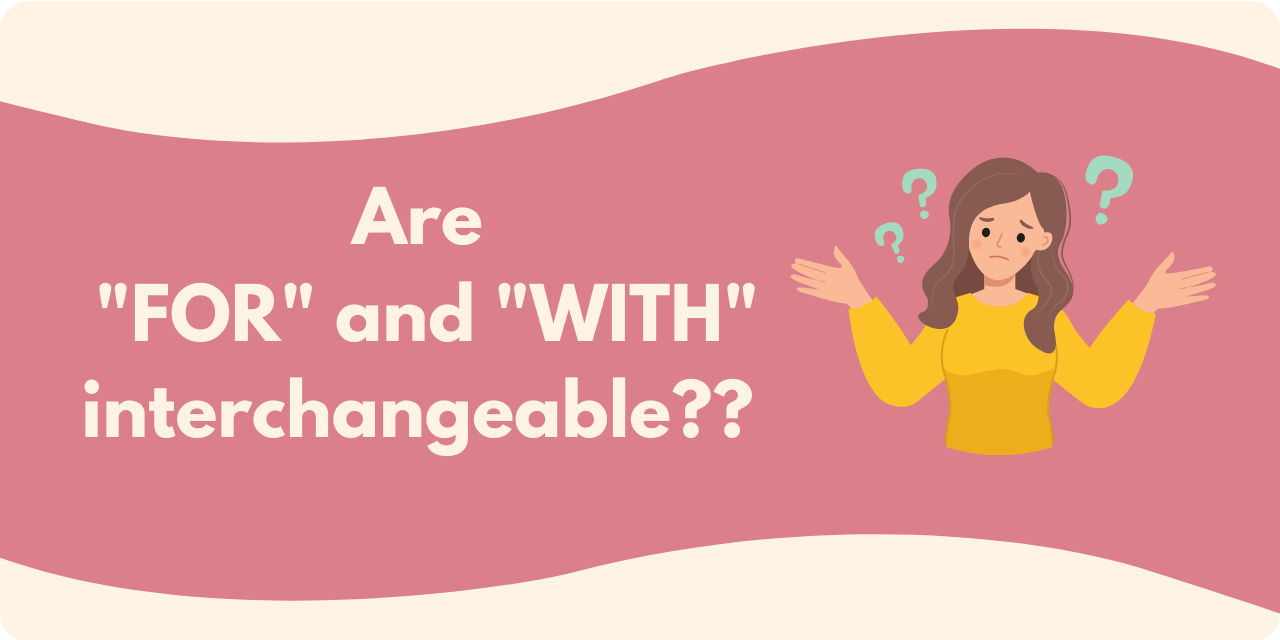Are “For” And “With” Interchangeable In Sentences?
In conversational English, it is not uncommon to see people swapping out “for” and “with” for one another. This leaves many people to wonder if that is grammatically correct or if they have different meanings.

In reality, both words do have separate meanings. However, you can technically use both within a given sentence. The main distinction, however, is that “for” should be used with words like “substitute,” and “with” should be used with words like “replace.”
Using “For” In Sentences
One way to simplify this idea is to think about it like a sports team. Take a look at the following scenario, which we can apply “for” to:
Sally is on the field, Mark is on the bench, and Sally injures herself. After the incident, Mark must play instead of Sally. For this situation, you could say:
- Mark was called on as a substitute for Sally
- Mark is substituted for Sally
- Mark substitutes for Sally
As you can see in these example sentences, when we commonly talk about substituting in something/someone new (such as Mark), we would say “for” in all the associated sentences. To summarize, when you use words like “substitute,” pairing them with “for” is most likely your best option!
Using “With” In Sentences
On the other hand, when you are using words like “replace,” it is more common to use “with” instead of “for.” Take the following sentences, for example:
- I replaced my debit card with a credit card.
- I replaced all of my meat products with vegan substitutes!
Interchanging “For” And “With”
As mentioned earlier, it is not uncommon for writers to mix these common words when pairing them with words like “replace” or “substitute.” In general, this isn’t an issue, although some people like to make a distinction that “for” should be used with words like “substitute,” while “with” should be used with words like “replace.”
Most people like to use “for” in all situations, as it emphasizes the new object/person first. In most cases, if it sounds right to you, it is probably the best choice. However, these are good distinctions to keep in mind!
As a finishing thought, look at these examples of interchanging “for” and “with” in substitution/replacement sentences:
- I substituted almond milk for cashew milk
- I substituted almond with cashew milk
- I swapped my debit card with a credit card
- I swapped my debit card for a credit card
Related: Referring To or Too?
Want to sharpen your business writing skills? Discover our acclaimed online courses at syntaxtraining.com Whether you want to learn about taking taking meeting notes, become a master proofreader, master punctuation or tune-up your business writing skills, our courses are here to help you.






